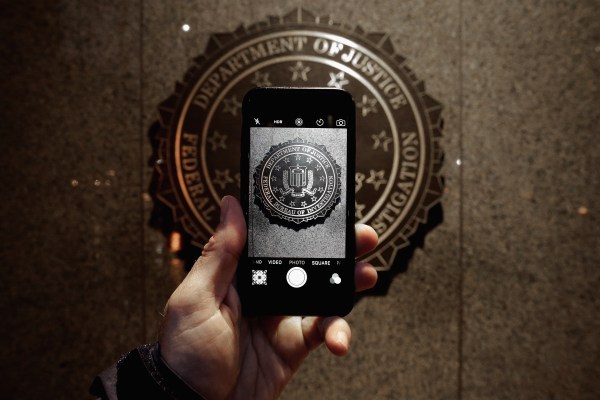A judge today officially put an end to the fight between the Justice Department and Apple over unlocking the iPhone of a New York man convicted of selling drugs. U.S. District Judge Margo Brodie denied as moot the government’s request to force Apple to help extract data from the phone after an individual provided the passcode to the government.
This is the second time in recent weeks that the government has back-pedaled on a case after initially trying to force Apple to help investigators gain access to iPhone data. The Justice Department abandoned its effort to compel Apple to create a custom operating system to help unlock the San Bernardino shooter’s phone nearly a month ago, saying that a third party had provided a way into the phone.
Although these two cases are over, the FBI’s fight with Apple over encryption will continue. There will always be more iPhones and more investigators who want to unlock them. But the New York case may influence the government to change its strategy when pursuing data stored on an iPhone.
The San Bernardino and New York cases sought to secure Apple’s cooperation under the All Writs Act, a 1789 law that allows judges to order compliance with search warrants and other court orders. Because the government received search warrants for the iPhones at the center of the two cases, it argued that the court could force Apple to facilitate access to the devices.
Apple, of course, opposed this, arguing that the company should not be ordered to compromise its security. Apple has provided data from its devices in roughly 70 cases; however, as Apple has improved device security in newer versions of iOS, it has lost the ability to extract data for the government.
Going forward, the government can continue relying on the All Writs Act in the hopes that, eventually, one of its cases will stick, or it can wait for a legislative solution from Congress. Neither option is particularly appealing.
Repeated use of the All Writs Act opens the Justice Department to additional embarrassment, as it insists Apple is the only entity that can help it get the information it needs — only to follow up with a whoops, just kidding court filing weeks later. But a Congressional solution will come slowly, and, with the Justice Department seeking access to several other Apple devices, it may not be willing to wait.
Although the All Writs Act initially seemed like a useful tool in the Justice Department’s fight for access to encrypted data, the two high-profile losses might keep the government from relying so heavily on the 227-year-old law in the future.
“I think the All Writs Act litigation is most likely over,” says Electronic Frontier Foundation staff attorney Nate Cardozo. “Nothing’s saying they can’t try it again, but they’ve been burned twice.”
Instead, Cardozo and other civil liberties advocates think the fight will shift to Congress, where the government can argue that it needs a new law to govern encryption since the old laws aren’t proving effective.
When Senators Richard Burr and Dianne Feinstein introduced their anti-encryption legislation two weeks ago, their efforts were panned by technologists as “flawed and dangerous,” “ludicrous” and “technically illiterate.” The bill, titled the Compliance with Court Orders Act of 2016, is not expected to receive widespread support among lawmakers. However, Cardozo says that the demands of the bill — which would require companies to decrypt “unintelligible” data by making it “intelligible” — are merely a point from which the government can negotiate.
“This is just the opening bid,” Cardozo says of the bill. Any successful encryption legislation is likely to scale back the drastic measures proposed in the Burr-Feinstein bill, while still providing some support for the Justice Department’s interests.
For its part, the Justice Department has maintained it has no interest in setting legal precedent in favor of decryption and is merely focused on getting into phones on a case-by-case basis.
“As we have said previously, these cases have never been about setting a court precedent; they are about law enforcement’s ability and need to access evidence on devices pursuant to lawful court orders and search warrants,” DOJ spokesperson Emily Pierce said in a statement about the New York case. “In this case, an individual provided the department with the passcode to the locked phone at issue in the Eastern District of New York. Because we now have access to the data we sought, we notified the court of this recent development and have withdrawn our request for assistance.”

